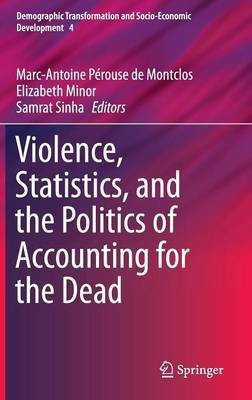Violence, Statistics, and the Politics of Accounting for the Dead(English, Hardcover, unknown)
Quick Overview
Product Price Comparison
This book examines the methodological problems of accounting for the dead in armed conflicts as well as how the process itself is open to manipulation and controversy. Inspired by the work of the International Practitioner Network of casualty recording organizations, the book features thematic analysis, case studies and historical discussion on the use of the body count towards political, humanitarian and military ends. The book begins with a strategic analysis of the body count that introduces a general discussion on the measurement of war violence; its treatment by the media, humanitarian organizations, governments and the military; and its legal and political implications. It then examines the accounting for civilian war casualties in past and future conflicts, investigates the way the International Committee of the Red Cross has dealt with the issue of missing persons and the identification of dead bodies in armed conflicts and explores the role of statistics in aid policydebates, especially in regards to humanitarian workers. Next, the book details the field of casualty recording as practiced by civil society organizations, with insights from a study of 40 practitioners. It also features narrative case studies that detail the ways human losses were documented during recent conflicts in Northeastern India (2006-2009) and Croatia (1991-1995). In addition, one case study looks at the usefulness of casualty recording in engaging policymakers on the impacts of particular technologies of violence. This book offers an insightful investigation into violence, statistics and the politics of accounting for the dead. It will appeal to a broad audience of policy-makers, human rights activists, humanitarian practitioners as well as academics.


